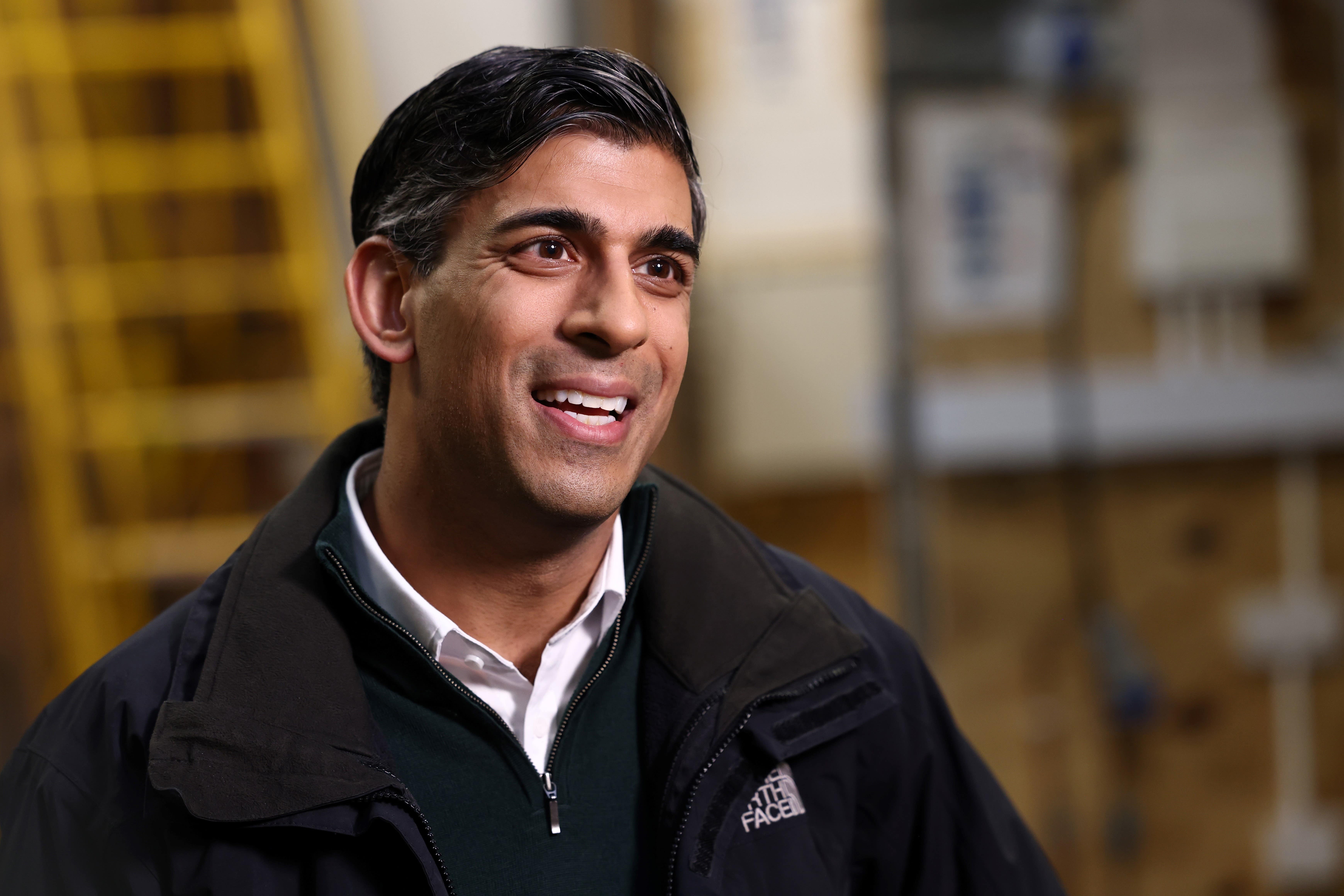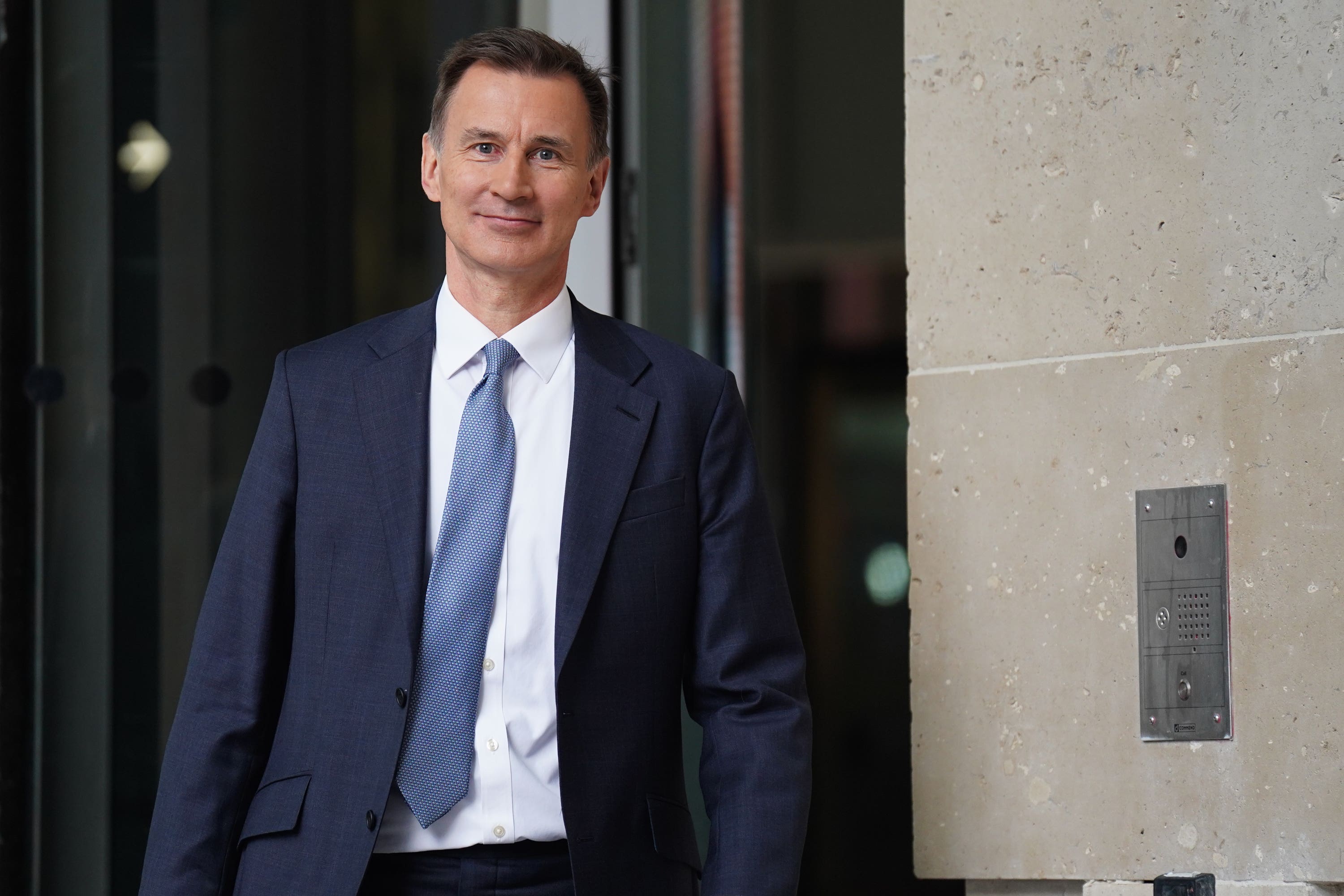Blow for Sunak’s budget plan as fewer than 1 in 5 Tory voters want tax cuts if it means public spending cuts
Voters across all parties are overwhelming against tax cuts if it means less money for public services
Your support helps us to tell the story
From reproductive rights to climate change to Big Tech, The Independent is on the ground when the story is developing. Whether it's investigating the financials of Elon Musk's pro-Trump PAC or producing our latest documentary, 'The A Word', which shines a light on the American women fighting for reproductive rights, we know how important it is to parse out the facts from the messaging.
At such a critical moment in US history, we need reporters on the ground. Your donation allows us to keep sending journalists to speak to both sides of the story.
The Independent is trusted by Americans across the entire political spectrum. And unlike many other quality news outlets, we choose not to lock Americans out of our reporting and analysis with paywalls. We believe quality journalism should be available to everyone, paid for by those who can afford it.
Your support makes all the difference.Rishi Sunak’s hopes of enticing voters with a tax giveaway have been dealt a major blow as new polling by the Fairness Foundation revealed that Britons are not supportive of tax cuts if they mean cuts to public spending.
In the survey, 64 per cent of voters support keeping taxes as they are or increasing them, while just 16 per cent say they want tax cuts if it means cutting public services.
The poll comes just as chancellor Jeremy Hunt prepares the ground for the government’s spring Budget.
Even among Conservatives, the proportion of voters who back tax cuts, 17 per cent, is vastly outweighed by those who want to see public spending maintained (50 per cent) or even increased (23 per cent).

Over the past few weeks, speculation has been rampant regarding the chancellor’s plans, with suggestions that Mr Hunt may drastically reduce public spending by billions of pounds to facilitate pre-election tax cuts in next month’s Budget.
This proposed action has been met with a stern warning from the International Monetary Fund, which deemed the planned spending cuts as unrealistic following a downgrade in its growth forecasts.
Adding to the chancellor’s challenges is the sobering revelation that Britain entered a technical recession last week after the economy contracted for the fourth quarter in a row.
Regardless, Mr Hunt and Mr Sunak find themselves under mounting pressure from Tory backbenchers to commit to tax cuts in a bid to reverse their electoral fortunes, as they currently lag behind Labour in the polls.
The Fairness Foundation poll also showed that there is public appetite for tax reform, as just over half of those polled also support a high-earners minimum tax rate, which would bring in at least a 35 per cent tax rate for anyone earning over £100,000.
These proposals come as it was revealed that the prime minister paid the same tax rate as a teacher on his total income last year due to lower rates of tax on income earned from wealth.

Two in three people also think income from wealth should be taxed at the same rate or a higher rate than income from work, while twice as many people support proposals to reform inheritance tax reliefs as oppose them, showing there is public support for ending unfair exemptions.
Fifty-four per cent of Conservative voters support proposals to invest more public money in HMRC compliance, with only 17 per cent opposed.
Will Snell, chief executive of the Fairness Foundation, said: “These findings make it very clear that the British public want to see well-funded schools and hospitals, not the unpopular and harmful tax cuts that the government is considering.
“With NHS waiting times at astronomical highs, it’s no surprise that people don’t want even more austerity-era slashes to the services they rely on daily, while wealthy individuals like Rishi Sunak pay tax at the same rates as a teacher.
“This polling shows that British people support making tax fairer. Even Conservative voters believe in a high-earners minimum tax rate that would level the playing field and see everyone earning over £100,000 annually pay a higher-than-average rate of tax, no matter how they make their money.”
The polling company Opinium questioned 2,134 adults.

Join our commenting forum
Join thought-provoking conversations, follow other Independent readers and see their replies
Comments